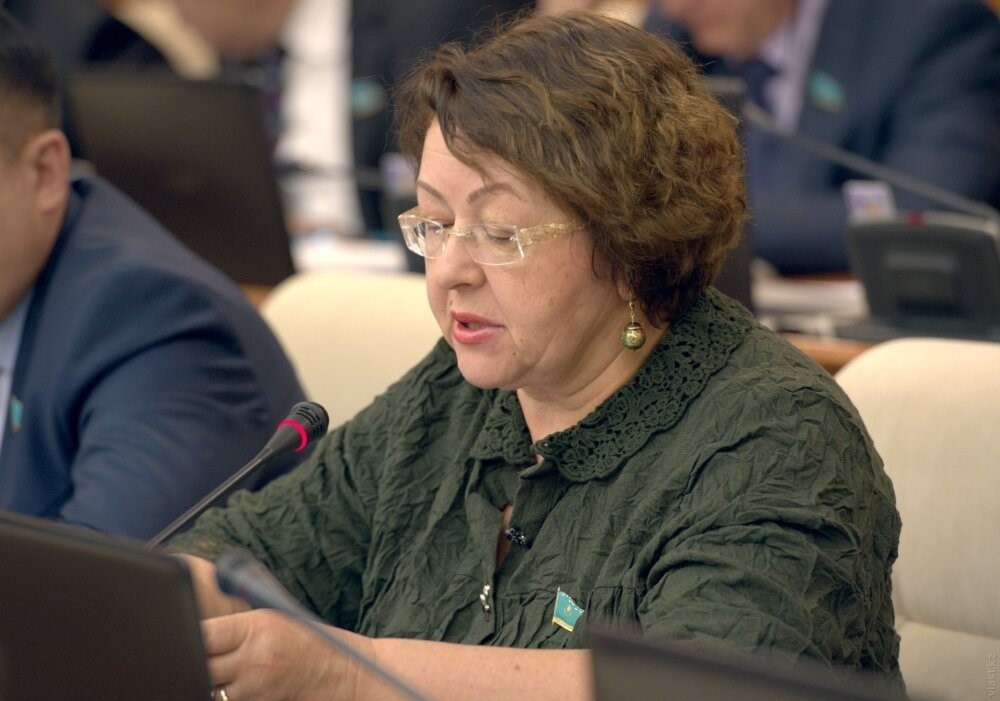USAID and ‘foreign agents’ in Astana
The repercussions in Central Asia of the US government's blocking of cooperation activities also include the suspension of subsidies to news agencies such as Radio Svoboda and associations that fight against the gagging of critical voices. And Kazakh nationalist politicians are rejoicing, calling for an end to ‘foreign interference’ in the story of their country.
Astana (AsiaNews) - The war announced by Donald Trump and Elon Musk against ‘left-wing radicals’, which has led to the blocking of the US Agency for International Development (USAID) and international subsidies for humanitarian and rights-defence projects, has had immediate repercussions in Central Asia with new initiatives against ‘foreign agents’ as in Kazakhstan, where some members of parliament are demanding a review of all USAID activities in the country, and the passing of a law against foreign influences.
The White House spokeswoman in Washington, Karoline Leavitt, has declared that Kazakhstan has been granted 4.5 million dollars for the ‘fight against disinformation’, without specifying what this allocation actually refers to, suggesting that it is necessary to oppose the ‘ineffective and dangerous’ projects of the various news agencies financed up to now by the Americans, such as Radio Svoboda and other ‘left-wing’ newspapers, according to Musk's definitions. The member of the Mažilis of Astana, Irina Smirnova of the local communist group, has urged the government to pass a law against inoagenty, similar to that of Russia and other former Soviet countries.
In her speech, Smirnova emphasised that ‘for a long time to come we will have to turn to foreign foundations, which act without control in our country, like that deceased person about whom either good things are said or nothing at all’, as they are supported by ‘numerous followers’, but the time has come to ’ give us clear answers, in this phase of geopolitical tensions that are also spilling over into Kazakhstan’. What is needed, therefore, is a law that is similar, in his opinion, “to those of the USA, China, Israel, Australia and other countries”, without mentioning Russia out of prudence.
On the other hand, the US Agency for International Development has financed various state projects in Kazakhstan for years, and legislation that is too repressive towards inoagenty would risk putting the government itself in crisis. In parliament, therefore, the possible ‘exceptions’ to the to be imposed, while for everything else, as Smirnova insisted, ‘our aim is to strengthen our sovereignty, without allowing anyone to impose alien values on us in the name of tolerance, a quality for which the Kazakhs are famous throughout the world, and to extend propaganda in the name of independent journalism’.
Independent media in particular provoke negative reactions in Kazakh nationalist politicians, given that most of them exist thanks to external funding, particularly American funding. It is precisely these agencies that are criticising the Astana authorities for the reduction of political freedoms after the events of 2022, which openly contrast with the proclamations of a ‘new Kazakhstan’ that would have brought liberalisation and freedom of expression. The worsening economic conditions in the country, as a consequence of Russia's war economy, have led to an increasingly repressive reaction to any criticism, even that of stand-up comedians.
Last year, presidential advisor Erlan Karin publicly illustrated the ‘red lines’ that should not be crossed in public discussions on topics such as inter-ethnic relations, language and religion, and even foreign policy. While stating that these were not ‘absolute bans’, Karin himself assured that expressions that ‘sow discord’ would not be allowed, in the spirit of Elon Musk's current bombastic statements. When journalists emphasise the mistakes and failures of the Kazakh authorities, even President Kasym-Žomart Tokaev reacts with extreme irritation, on topics such as the defence of women's rights, which in these very days are provoking repressive actions against the initiatives of the Feminita movement in Almaty, despite the presidential proclamations in favour of women's initiatives in Kazakh society.
The ‘Parents’ Council’ of Kazakhstan has also intervened in recent days in defence of traditional values, against propaganda “on the subject of gender identity which confuses the minds of our children, who will one day start to raise barricades in our society”. The fear is that ‘a child of today will want to become the leader of the country of tomorrow, and will make a revolution against their own families’, and the president of the Parents‘ Association, Bagila Baltabaeva, wonders “who will govern our country in two or three generations” time?’. It's much better, therefore, to rely on the protection of Trump and Musk, in defence of Kazakhstan and all of Central Asia.
12/03/2024 10:37
08/02/2024 09:28
23/11/2023 09:54
18/09/2023 10:01







.png)










